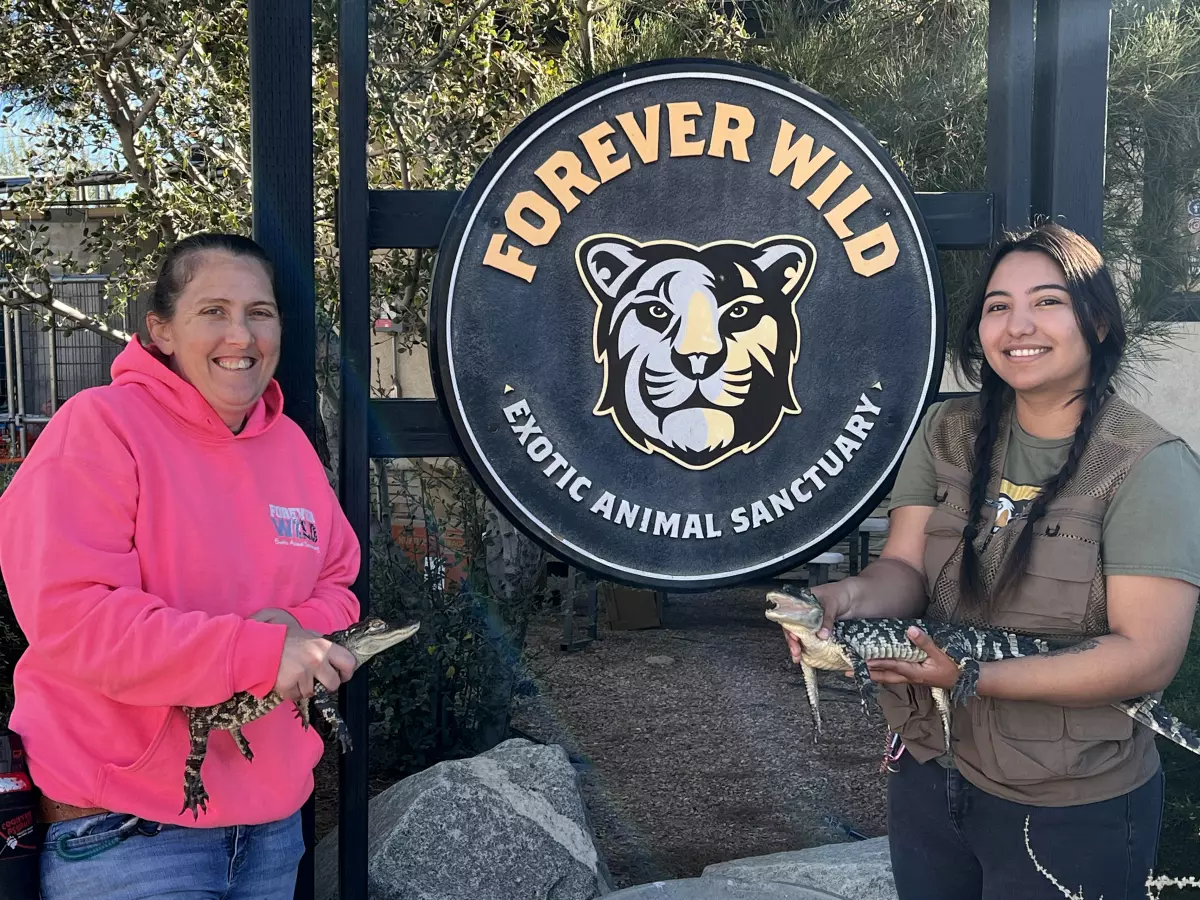Baby Alligators Found in San Bernardino Home

An Unexpected Investigation
San Bernardino police were recently involved in an investigation of a squatters case at a residence in the city. However, what they stumbled upon during their operation was far from the ordinary. Inside the residence, hidden away from the public eye, were two baby alligators. The surprising discovery raised many questions about why and how these reptiles were being kept as pets in a residential area.
The Unusual Find
The home where the baby alligators were found is situated on Santa Fe Street and the discovery took place late last month, according to statements from local police and media reports. The fact that these reptiles were being housed in a residential setting is not only unusual but also raises concerns about the welfare of these animals.
A New Home with Assistance
Upon their discovery, the baby alligators were initially taken to the city's animal shelter. However, recognizing the need for specialized care, California Fish and Wildlife stepped in to assist. The reptiles have now found a new home at the Forever Wild Exotic Animal Sanctuary in Phelan, where they can receive the proper care and attention they require.
Road to Recovery
Kiah Almquist, the sanctuary's manager and daughter of founder Joel Almquist, has reported that the baby alligators, affectionately named Loki and Sylvie after characters from the Disney+ show "Loki," were not kept in ideal conditions. These young reptiles, measuring 12 to 24 inches in length, were found covered in white paint, a situation that required immediate intervention. Keepers at the sanctuary are diligently working to remove the white paint, provide care for their dry skin, and ensure they are on a balanced diet of raw meat and "pinkies," which are previously frozen baby mice often fed to reptiles.
A Temporary Stay
Loki and Sylvie are currently being held in a quarantine environment at the sanctuary, as plans are underway to secure funding for a more permanent home. Given their size, it is likely to be a few years before the baby alligators can join the sanctuary's main pond, where eight adult alligators measuring about 8 feet each currently reside.
The Complex Issue of Exotic Pets
The case of these baby alligators sheds light on the complex issue of exotic animals being kept as pets. In most cities, including San Bernardino, exotic animals like alligators are not permitted as household pets. Nevertheless, it is not uncommon for people to keep a wide range of animals in and around their homes.
Kiah Almquist has mentioned that the sanctuary routinely receives requests to accept various exotic animals, including alligators, snapping turtles, ferrets, and sugar gliders, in addition to their resident tigers, bears, and hyenas. Often, the sanctuary is left to unravel the mysteries surrounding the animals' past and the reasons for their unique circumstances.
The Importance of Responsible Ownership
Responsible ownership of exotic animals is essential. Almquist emphasizes that exotic animals like alligators may seem appealing when they are young, but they can pose significant dangers as they grow older and larger. These reptiles have natural behaviors, like the "death roll," which makes them unsuitable as pets as they can become a danger to their owners and those around them.
Unfortunately, some owners release their alligators into lakes and rivers as they become unmanageable, which can disrupt local ecosystems. The sanctuary has even had to rescue alligators dumped into rivers in the past.
A Bright Future for Loki and Sylvie
As Loki and Sylvie find their place at the Forever Wild Exotic Animal Sanctuary, everyone involved is filled with excitement. The sanctuary invites members of the public to visit these juvenile alligators and their 200-plus other resident animals. Admission fees contribute to the care of these creatures, ensuring they receive the attention and support they need on their journey to recovery and well-being.

